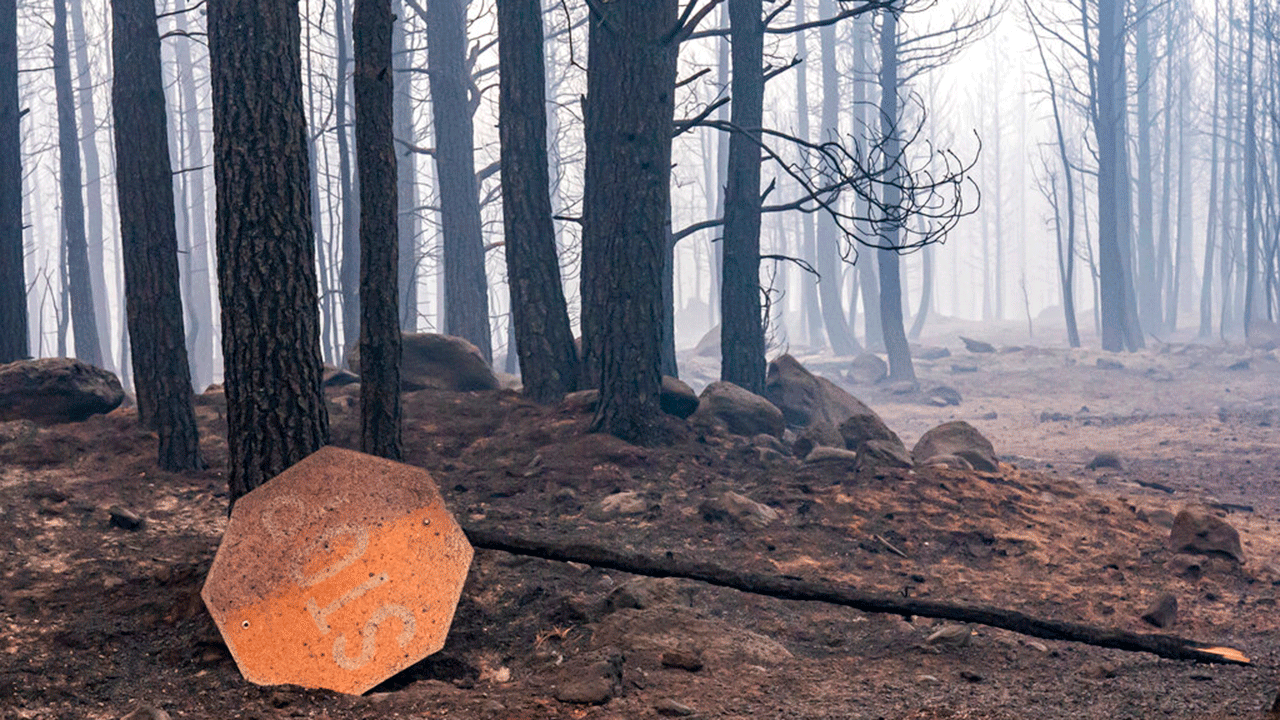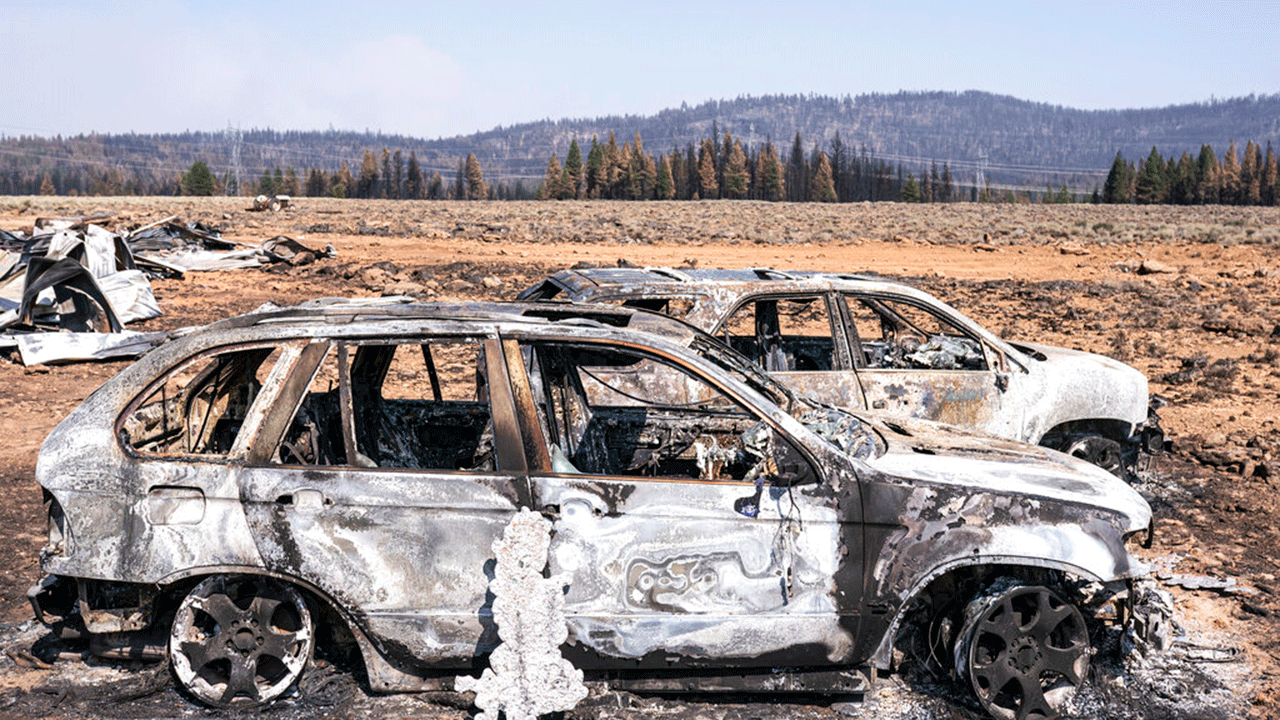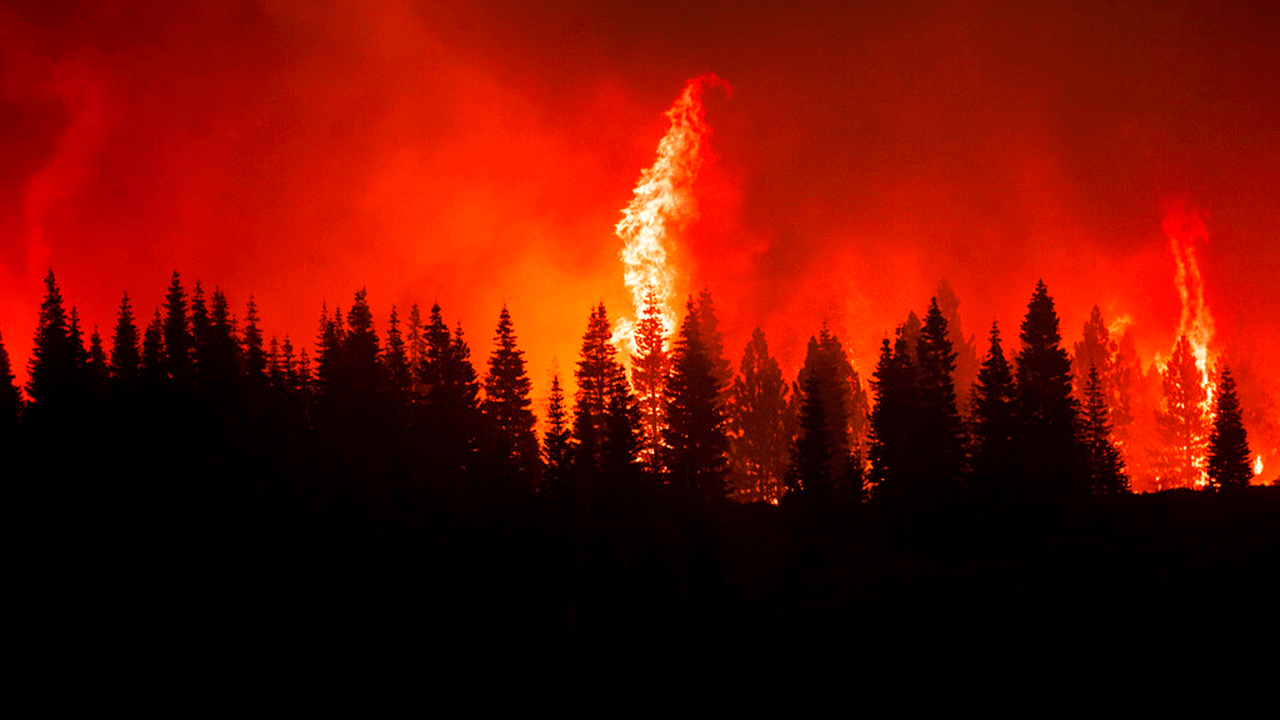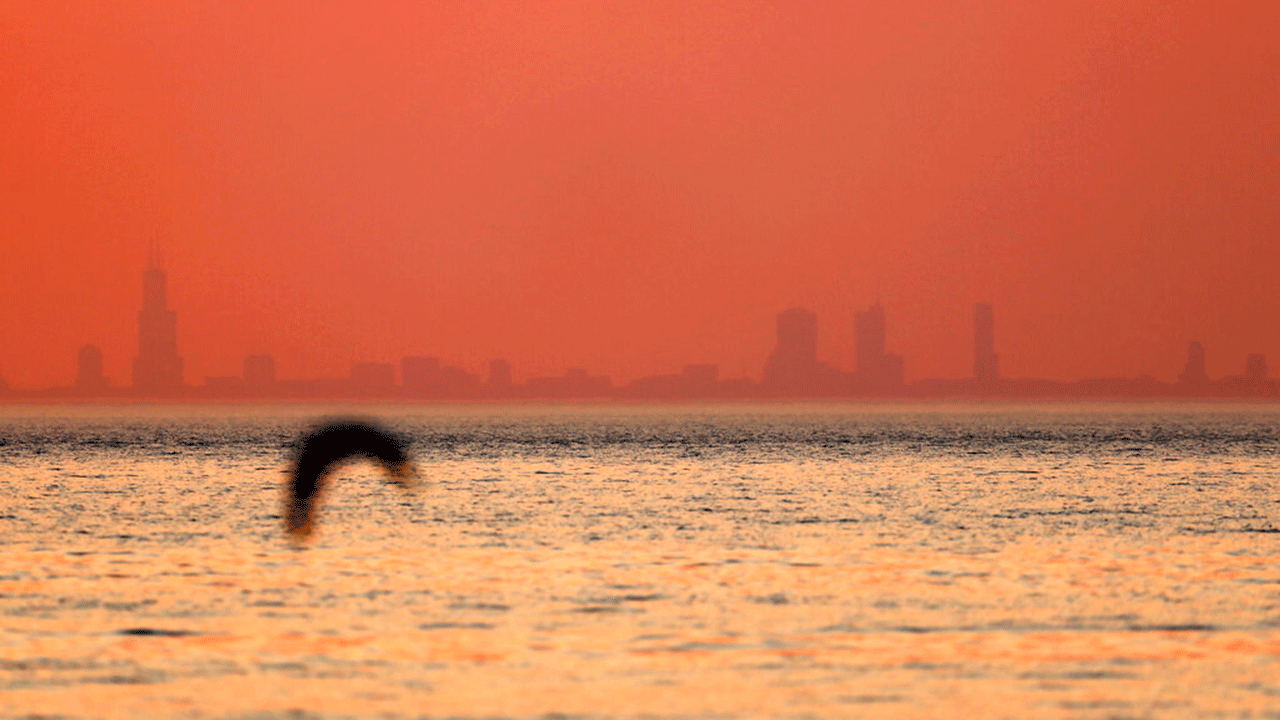Fox News Flash top headlines for July 31
Fox News Flash top headlines are here. Check out what's clicking on Foxnews.com.
As wildfires continue to ravage the western U.S., smoke and drought conditions have complicated the lives of Americans far beyond the reach of the flames.
According to the National Interagency Fire Center, 83 large fires have combined to char 1,741,281 acres across 13 states so far this season, with new blazes reported in Idaho, Washington state and Wyoming,
The agency said Friday that 22,000 firefighters and support personnel are working to combat the fires as excessive heat continues this weekend over the interior Pacific Northwest, central U.S. and parts of the South.

A sign damaged by the Bootleg Fire lies on the ground on Thursday, July 22, 2021, near Paisley, Ore. (AP Photo/Nathan Howard)
As temperatures rise and winds whip, smoke from the fires has choked communities across the nation, forcing the National Weather Service to issue air quality advisories along the East Coast and turning the sun a blood orange.
The Centers for Disease Control and Prevention recommend taking several steps to prepare for an approaching wildfire – and safely get out of harm's way.
The agency urges people to learn and follow local evacuation plans, including finding escape routes and shelters, and having a similar plan for pets.
Emergency supplies like respirators and other necessary medical equipment should be on hand.
Debris or vegetation that could catch fire should be removed from around properties. Smoke should be kept out of buildings by shutting windows and using a portable air cleaner.
People in active fire zones should also monitor guidance from emergency response and local authorities, in addition to guidance from the National Oceanic and Atmospheric Administration (NOAA), the Emergency Alert System (EAS) and AirNow's map of fires throughout North America.
If a fire has already started, people are advised to protect themselves from smoke exposure – which can exacerbate underlying medical conditions – and prepare to safely evacuate the area.
Regardless of whether or not people in affected areas are told to evacuate, travelers should proceed with caution and stay informed, keeping current on the status of wildfires nearby.

Two cars that were destroyed by the Bootleg Fire sit near damaged property Thursday, July 22, 2021, near Bly, Ore. (AP Photo/Nathan Howard)
In such an emergency, packing properly becomes an essential skill. The CDC's Family Emergency Checklist notes the importance of carrying money and necessary documents, medications and other health-related items, along with food, water and proper clothing.
A navigational system or other way to navigate is also critical to survival. Visibility on escape routes may be sharply reduced and the power may be out.
CLICK HERE TO GET THE FOX NEWS APP
Experts say people in high-risk areas should have a "Go Bag" at the ready to make it easier to quickly and safely evacuate.
Time lost scrambling for passports and pills could make all the difference.












































